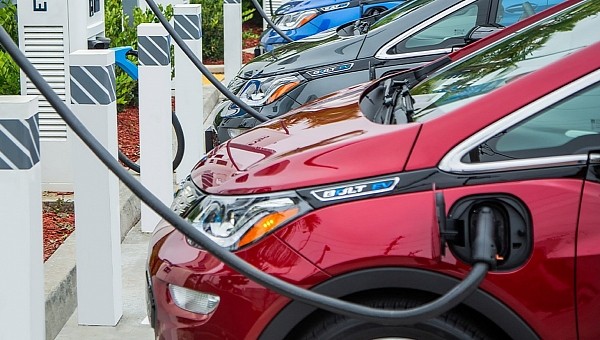Earlier this year, back in August, California announced its decision to ban the sale of new gasoline-powered cars by 2035. The decision was supported by the California Air Resources Board, and it made The Golden State lead the initiative in a direction that can be seen in Europe as well. Now, The Beaver State wants to follow suit, but with a small concession.
Oregon's Department of Environmental Quality approved a rule on Monday, December 19th, which involves banning the sale of new passenger vehicles that only have an internal-combustion engine by 2023. There are three elements in this ban that are important. The first refers to passenger vehicles, the second is about "ICE-only," and the third is the "sale of new" vehicles of that type.
In other words, Oregonians will be able to buy a brand-new vehicle that requires gasoline to run, but only if it is a plug-in hybrid. The rules are not specific enough to dictate how long a PHEV runs on battery power to be eligible for the exemption, but policymakers have until 2034 to decide what will happen after the first day of 2035.
As usual with Government policies, along with various rules or decisions of this kind, do not take anything for granted, and try to plan your medium- and long-term purchases in accordance with those guidelines. You may not like it, like most people do not like paying taxes either, but they do it because the Government of their country needs them to support itself and provide diverse services that people may need.
Starting 2035, Oregon residents will be able to buy new passenger vehicles that have electric, hydrogen, or plug-in hybrid drivetrains. The latter is permitted in a move to offer flexibility for the state's rural population, who might find it trickier to get access to a charging station. Since their homes do have electricity, using a plug-in hybrid might make more sense than a fully electric vehicle.
Fortunately, vehicles that are already on the road at the time, as well as second-hand vehicles, may be traded and driven in Oregon without restriction in 2035, as reports note. The ban is strictly focused on new passenger vehicle sales, with a focus on "new," which means that only dealers and manufacturers are affected.
Another important part of the bill is inspired by the legislation that was voted in California, which involved a minimum required percentage of an automaker's sales in the state to be electric, PHEV, or hydrogen vehicles as of 2026. Dealers will do whatever they can to hit that magic 35 percent mentioned in the rules, while they will have to reach 100% by 2035.
Estimates place the transportation sector account for almost 40 percent of greenhouse gas emissions in Oregon, so authorities hope to get the figures to a lower value in future years. However, they will take another look at the rules and the effects of the practice in 2028, to be sure that things are going as they had hoped.
In other words, Oregonians will be able to buy a brand-new vehicle that requires gasoline to run, but only if it is a plug-in hybrid. The rules are not specific enough to dictate how long a PHEV runs on battery power to be eligible for the exemption, but policymakers have until 2034 to decide what will happen after the first day of 2035.
As usual with Government policies, along with various rules or decisions of this kind, do not take anything for granted, and try to plan your medium- and long-term purchases in accordance with those guidelines. You may not like it, like most people do not like paying taxes either, but they do it because the Government of their country needs them to support itself and provide diverse services that people may need.
Starting 2035, Oregon residents will be able to buy new passenger vehicles that have electric, hydrogen, or plug-in hybrid drivetrains. The latter is permitted in a move to offer flexibility for the state's rural population, who might find it trickier to get access to a charging station. Since their homes do have electricity, using a plug-in hybrid might make more sense than a fully electric vehicle.
Fortunately, vehicles that are already on the road at the time, as well as second-hand vehicles, may be traded and driven in Oregon without restriction in 2035, as reports note. The ban is strictly focused on new passenger vehicle sales, with a focus on "new," which means that only dealers and manufacturers are affected.
Another important part of the bill is inspired by the legislation that was voted in California, which involved a minimum required percentage of an automaker's sales in the state to be electric, PHEV, or hydrogen vehicles as of 2026. Dealers will do whatever they can to hit that magic 35 percent mentioned in the rules, while they will have to reach 100% by 2035.
Estimates place the transportation sector account for almost 40 percent of greenhouse gas emissions in Oregon, so authorities hope to get the figures to a lower value in future years. However, they will take another look at the rules and the effects of the practice in 2028, to be sure that things are going as they had hoped.










